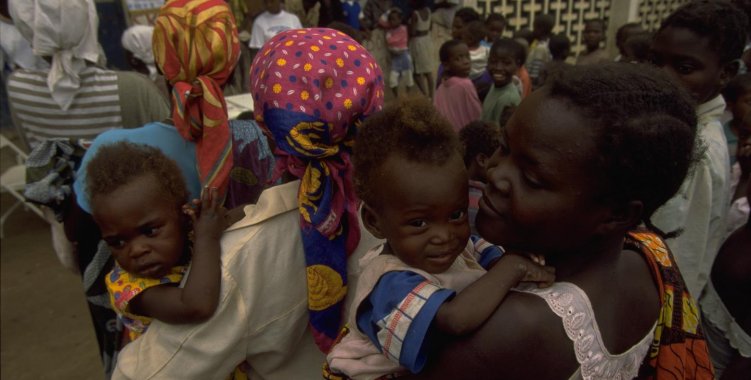"The constitutions of Portuguese-speaking African countries are quite revolutionary. Theoretically, women have the same rights as men, but that is not what actually happens", assured Inocência Mata, one of those responsible for organizing a meeting that brings together Lisbon, on Friday and Saturday, women who fought against fascism and colonialism, in Portugal and in the African countries that became independent with the military coup of April 25, 1974.
According to the researcher, women still have a "very subordinate" status in Portuguese-speaking African countries, even if they are present in the political arena.
"Years ago, a law was passed in Mozambique, in a parliament in which there were female deputies, in which a man who raped a woman, as long as he was willing to marry her, would not be prosecuted. The crime ended as long as he was willing to marry her", said the researcher from the University of Lisbon, when asked about the condition of African women after independence in the former Portuguese colonies.
For Inocência Mata, "the mental, cultural revolution" needs to be carried out, starting with the women themselves.
"Now there is a lot of talk about empowerment, but first we have to talk about emancipation, because there are many empowered women who are not emancipated at home," she said.
Women, she said, continue to be treated as "second-class citizens" in these societies, even though they are constitutionally guaranteed a political right.
"I have an article in which I start from the statement of two candidates for the Presidency of the Republic in relation to their opponents. One said that a woman is something to keep in the corner of the bed. And the other, 20 years later (in this case, father and son) , told her opponent that she should go home and take care of her husband", she explained.
At the International Congress of Women in the Fight against Fascism and Colonialism, which will be held at Torre do Tombo, there will be women who shared with men the struggle for liberation in African territories under Portuguese rule and who, according to the researcher, were seen as "the flower" of the guerrilla.
In Inocência Mata's opinion, the role of women in liberation struggles was recognized, but not projected.
In this regard, she recalled an interview with writer Alda Espírito Santo, in which she was asked why she had never married. "She said - Look, no man would want to marry me, because I don't submit, my conscience doesn't submit. No man would accept me going out at night to go to a meeting."
"She was very clear! What she meant was 'one thing is the political struggle', but there was another struggle and, in fact, after independence she fought a lot for the emancipation of women", said the researcher, referring to the São Tomé author as someone who was aware that as serious as colonial oppression was the oppression of tradition in relation to women.
"We must take into account that there was a fight against colonialism and we also see this in the poets Noémia de Sousa, Maria Manuela Margarido, we see that they spoke a lot about the condition of African men and women, but always from a colonial perspective, they never mentioned that women suffered a first form of oppression, which was at home", she observed.
At the congress in the coming days, as part of the 50th anniversary of the 25th of April, topics such as the female revolution and other forms of citizenship will be addressed, by Helena Carvalhão Buesco, retired professor from the Faculty of Arts of the University of Lisbon, in an initiative that brings together researchers and activists from several countries, driven by the Women's Democratic Movement (MDM).
"We wanted to bring women's participation in the 25th of April, both Portuguese women and African women", explained Inocência Mata, highlighting the "Memories and Testimonies" testimonial tables, with Portuguese anti-fascists and anti-colonialists from Angola, Mozambique, São Tomé and Príncipe and Cape Verde.
"What they did, what those people did. There are study tables, the first one will talk about the history of female resistance, armed struggle, clandestine struggle, literature, the arts and there is a testimonial table", she indicated.
The congress will also dedicate a panel to the research that is being produced, namely on the participation of women in the struggles for independence, particularly in the guerrilla warfare.
"Women have always been seen as the elements who carried the ammunition, the weapons, took care of the children. They also did that, of course. But they also had a role in the armed struggle", emphasized Inocência Mata.







